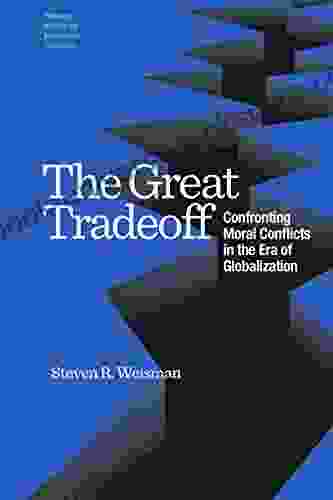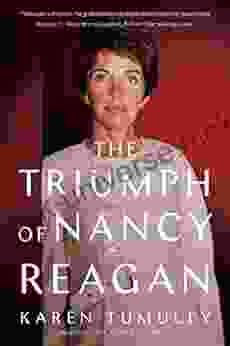Public Opinion: Walter Lippmann's Pioneering Insights and Their Enduring Relevance

Walter Lippmann, a renowned American journalist, political commentator, and public intellectual, made significant contributions to our understanding of public opinion in the early 20th century. His seminal work, Public Opinion, published in 1922, has had a profound impact on the field of political science and continues to influence contemporary discussions about the role of public opinion in a democracy.
4.2 out of 5
| Language | : | English |
| File size | : | 686 KB |
| Text-to-Speech | : | Enabled |
| Screen Reader | : | Supported |
| Enhanced typesetting | : | Enabled |
| Word Wise | : | Enabled |
| Print length | : | 240 pages |
| Lending | : | Enabled |
Lippmann's Critique of the Rational Public
Lippmann's central argument in Public Opinion is that the public is not capable of forming rational opinions about complex political issues. He challenged the prevailing notion, prevalent during the Enlightenment era, that citizens could objectively evaluate information and make informed decisions. Instead, Lippmann argued that public opinion is often based on stereotypes, prejudices, and incomplete information.
Lippmann's critique of the rational public was based on his observations of the ways in which the media and other institutions shape public opinion. He argued that the public is exposed to a limited and filtered version of reality, which is often distorted by biases and preconceptions. This limited exposure, combined with cognitive biases and the influence of elites, makes it difficult for the public to form fully informed and rational opinions.
The Manufacture of Consent
Building upon his critique of the rational public, Lippmann developed the concept of the "manufacture of consent." He argued that elites, such as politicians, business leaders, and media owners, play a crucial role in shaping public opinion and maintaining their positions of power. Lippmann believed that these elites use various techniques, such as propaganda, advertising, and the control of information, to manufacture consent for their policies and decisions.
Lippmann's concept of the manufacture of consent has been influential in understanding the relationship between power and public opinion. It has helped to explain how elites can influence public opinion in ways that may not be in the best interests of the public as a whole. Lippmann's work has also raised important questions about the role of the media in a democracy and the extent to which it can provide the public with the information they need to make informed decisions.
The Importance of Expert Opinion
Given his critique of the rational public, Lippmann argued that experts play a vital role in a democracy. He believed that experts possess specialized knowledge and expertise that the public lacks and that they can provide valuable insights into complex political issues. Lippmann advocated for a system of "functional representation" in which experts would be responsible for making decisions in their areas of expertise.
Lippmann's views on the role of experts have been controversial. Some critics have argued that his elitism undermines the democratic principle of equal representation. Others have argued that Lippmann's faith in experts is misplaced and that experts can be just as biased and fallible as the rest of the public. Despite these criticisms, Lippmann's work has stimulated important debates about the role of experts in a democracy and the challenges of balancing expert opinion with democratic values.
Legacy and Contemporary Relevance
Walter Lippmann's work on public opinion has had a profound impact on the field of political science and continues to be relevant to contemporary discussions about the role of public opinion in a democracy. His critique of the rational public and his concept of the manufacture of consent have helped to shape our understanding of the ways in which public opinion is formed and manipulated. Lippmann's work has also raised important questions about the role of the media, the importance of expert opinion, and the challenges of democratic decision-making in an era of information overload and competing narratives.
In the 21st century, Lippmann's ideas are particularly relevant in light of the rise of social media and the challenges it poses to traditional forms of media and the dissemination of information. Social media platforms have made it easier for individuals to access information and connect with others who share their views, but they have also created echo chambers and filter bubbles that can reinforce biases and make it difficult for individuals to encounter diverse perspectives. Lippmann's work reminds us of the importance of critical thinking, media literacy, and the role of expert opinion in a democracy.
Walter Lippmann's contributions to our understanding of public opinion are immense. His work has challenged the notion of the rational public and highlighted the role of elites, media, and experts in shaping public opinion. Lippmann's insights have stimulated important debates about the challenges of democratic decision-making and the role of public opinion in a democracy. His work remains relevant today, as we grapple with the challenges of information overload, misinformation, and the erosion of trust in institutions.
4.2 out of 5
| Language | : | English |
| File size | : | 686 KB |
| Text-to-Speech | : | Enabled |
| Screen Reader | : | Supported |
| Enhanced typesetting | : | Enabled |
| Word Wise | : | Enabled |
| Print length | : | 240 pages |
| Lending | : | Enabled |
Do you want to contribute by writing guest posts on this blog?
Please contact us and send us a resume of previous articles that you have written.
 Best Book Source
Best Book Source Ebook Universe
Ebook Universe Read Ebook Now
Read Ebook Now Digital Book Hub
Digital Book Hub Ebooks Online Stores
Ebooks Online Stores Fiction
Fiction Non Fiction
Non Fiction Romance
Romance Mystery
Mystery Thriller
Thriller SciFi
SciFi Fantasy
Fantasy Horror
Horror Biography
Biography Selfhelp
Selfhelp Business
Business History
History Classics
Classics Poetry
Poetry Childrens
Childrens Young Adult
Young Adult Educational
Educational Cooking
Cooking Travel
Travel Lifestyle
Lifestyle Spirituality
Spirituality Health
Health Fitness
Fitness Technology
Technology Science
Science Arts
Arts Crafts
Crafts DIY
DIY Gardening
Gardening Petcare
Petcare Jane Mcdonald
Jane Mcdonald Roland Geyer
Roland Geyer Linda M Heywood
Linda M Heywood Pauley Perrette
Pauley Perrette Nonie Darwish
Nonie Darwish Paul J Mladjenovic
Paul J Mladjenovic Amanda Brice
Amanda Brice Charles E Sorensen
Charles E Sorensen Brian P Moran
Brian P Moran Jeffrey A Robinson
Jeffrey A Robinson Julie Atherton
Julie Atherton Brian Johnson
Brian Johnson William J Mann
William J Mann Carol Roth
Carol Roth Doug Risner
Doug Risner Clayton M Christensen
Clayton M Christensen Daniel Sonabend
Daniel Sonabend Dave Rossi
Dave Rossi Cathy N Davidson
Cathy N Davidson Daniel Ankele
Daniel Ankele
Light bulbAdvertise smarter! Our strategic ad space ensures maximum exposure. Reserve your spot today!
 Julio Ramón RibeyroFollow ·19.8k
Julio Ramón RibeyroFollow ·19.8k Dan BrownFollow ·10.7k
Dan BrownFollow ·10.7k Brian BellFollow ·6.8k
Brian BellFollow ·6.8k Fredrick CoxFollow ·19.4k
Fredrick CoxFollow ·19.4k Gus HayesFollow ·5.4k
Gus HayesFollow ·5.4k Robert ReedFollow ·10.6k
Robert ReedFollow ·10.6k Clarence BrooksFollow ·16.1k
Clarence BrooksFollow ·16.1k Isaac AsimovFollow ·7.9k
Isaac AsimovFollow ·7.9k

 Dallas Turner
Dallas TurnerThe Race to Control Cyberspace: Bill Gates's Plan for a...
Bill Gates has a...

 Clayton Hayes
Clayton HayesMy 40 Year Career On Screen And Behind The Camera
I've been working in...

 Arthur Mason
Arthur MasonUniquely Dangerous: The Troubling Record of Carreen...
Carreen Maloney, a Democratic...

 Floyd Richardson
Floyd RichardsonThe True Story of a Canadian Bomber Pilot in World War...
In the annals of World...

 Corey Hayes
Corey HayesThe Sky of Youth: A Journey of Discovery and Fulfillment
By John Maxwell ...

 Truman Capote
Truman CapoteThe Great Central Bank Experiment: Finance Matters
Central banks have been...
4.2 out of 5
| Language | : | English |
| File size | : | 686 KB |
| Text-to-Speech | : | Enabled |
| Screen Reader | : | Supported |
| Enhanced typesetting | : | Enabled |
| Word Wise | : | Enabled |
| Print length | : | 240 pages |
| Lending | : | Enabled |











